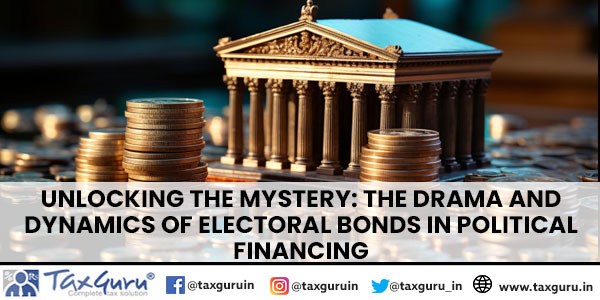The Supreme Court has declared the electoral bonds scheme, allowing anonymous political donations, as unconstitutional, citing a violation of the right to information under Article 19(1)(a) of the Constitution. The unanimous decision by the five-judge Constitution Bench also nullified amendments to the Income Tax Act and the Representation of People Act, which permitted anonymous donations. The State Bank of India has been directed to provide details of electoral bonds received by political parties to the Election Commission of India by March 6. The Election Commission will publish this information on its official website by March 13. Un encashed electoral bonds are to be returned, with the issuing bank refunding the amount to the purchaser’s account. The court rejected the government’s argument that the scheme would combat black money, emphasizing that absolute exemptions compromise transparency in political funding.
Electoral bonds, which have been in the news recently, were introduced back in 2017 to reform the political funding process in India. Regarding donations to NGOs or political parties, the Income Tax Act allows deductions under specific sections. Yet, if an individual has contributed through a electoral bonds to a political party, the question arises: would the donor still be eligible to claim a deduction?
Let’s delve into a clear understanding of electoral bonds and explore the reasons behind the Supreme Court’s ruling on electoral bonds.
Q.1 What are Electoral Bonds?
Electoral bonds are financial instruments that individuals and corporations can purchase from authorized banks and use to make donations to political parties in India.
Q.2 How do Electoral Bonds Work?
These bonds function as a way to make anonymous donations to political parties. They can be purchased in specified denominations from authorized banks and then given to a chosen political party.
Q.3 What is the Purpose of Electoral Bonds?
The primary purpose of electoral bonds is to introduce a transparent and accountable method for political funding while also protecting the privacy of the donors.

Q.4 Why Did the Supreme Court Pass a Judgment on Electoral Bonds?
The Supreme Court passed a judgment to address concerns related to transparency and accountability in political funding. The ruling aimed to examine and ensure the legality and constitutionality of electoral bonds.
Q.5 What will happen to the taxpayers who have used electoral bonds to make donation to political party?
Many taxpayers have utilized electoral bonds for contributions to political parties since their introduction. Several may have claimed deductions for their donations to political parties. Currently, it remains uncertain whether the deductions claimed by taxpayers before the Supreme Court’s judgment will be subject to taxation or not.
Conclusion: The Supreme Court’s decision to nullify the electoral bonds scheme underscores the importance of transparency and accountability in political funding. While electoral bonds were introduced with the intention of reforming the political funding process, the court’s ruling highlights the need to ensure that any mechanism for political donations aligns with constitutional principles and upholds democratic values. Going forward, it is essential to explore alternative methods that promote transparency while protecting the privacy of donors in political funding.
These FAQs provide a basic understanding of electoral bonds, their purpose, and the recent Supreme Court judgment’s implications. For the most current information, it’s advisable to check the latest updates and government notifications.
*****
The above article is written by Mr. Mihir Verma (mihir.verma@abacussolutions.co.in) and reviewed by Mr. Suyash Tripathi (suyash.tripathi@abacussolutions.co.in).





